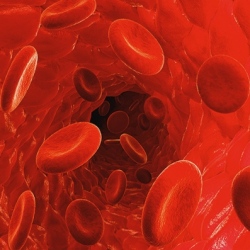
A blood test for antibodies against bacterial toxins allows most patients with diarrhea-predominant irritable bowel syndrome (D-IBS) to avoid invasive endoscopies that would otherwise be needed to check for Crohn’s disease or ulcerative colitis, a researcher said here.
The test, which is receiving a commercial launch here at the Digestive Disease Week (DDW) annual meeting, showed positive predictive values "north of 98%" for IBS in a trial involving some 2,700 patients with IBS, inflammatory bowel disease (IBD), or celiac disease as well as healthy controls, said Mark Pimentel, MD, of Cedars-Sinai Medical Center in Los Angeles.
Pimentel explained that the test detects antibodies to cytolethal distending toxin B (CdtB) and vinculin, which are released by bacteria that cause food poisoning. Many earlier studies have shown that foodborne bacterial infections can lead to IBS by triggering an autoimmune reaction, he said.
Because IBS symptoms are nonspecific and are also seen in IBD and celiac disease, among others, patients often undergo a long diagnostic odyssey to establish a diagnosis. Pimentel noted as well that IBS is a diagnosis of exclusion, meaning that patients must undergo tests for other conditions that match the symptomatology. In the case of IBD, that typically means repeated colonoscopies.
A blood test that would quickly rule out IBD would be a significant benefit to patients by reducing the cost, inconvenience, and discomfort associated with colonoscopies, Pimentel argued.
